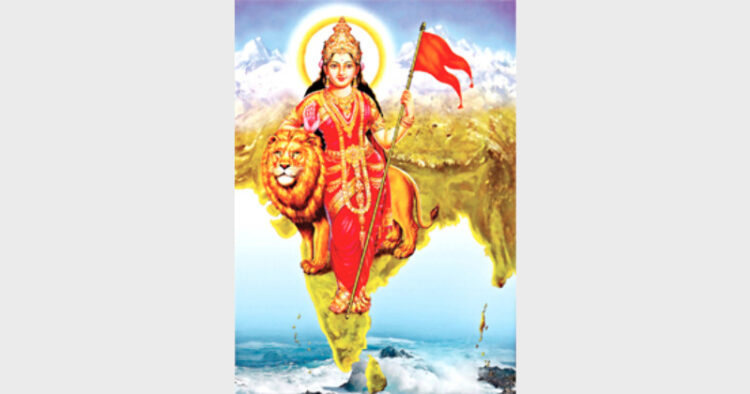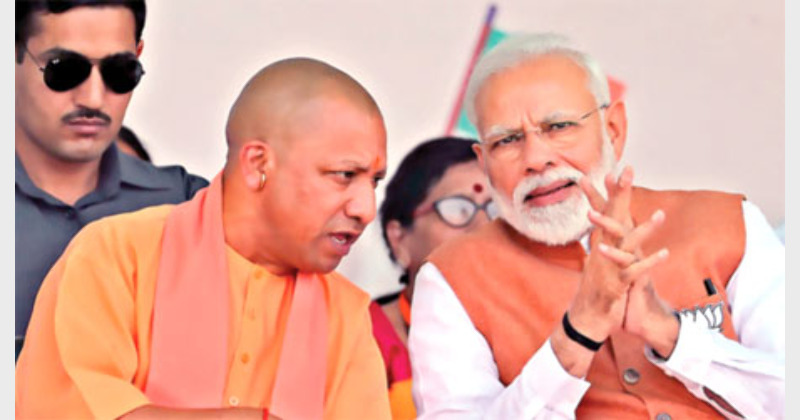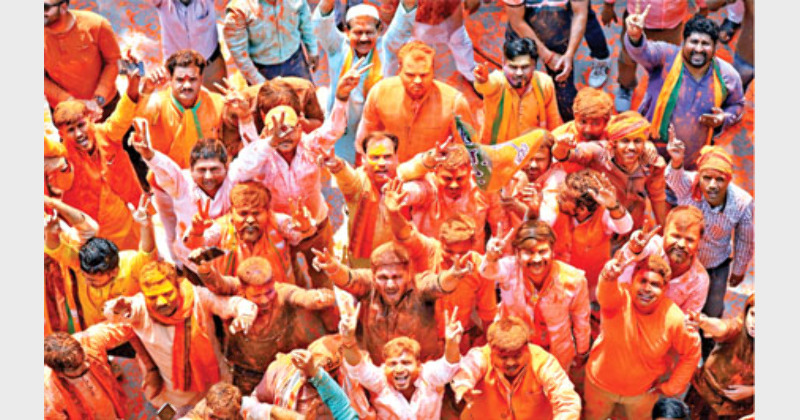Recently, I came across a public figure speaking of how one cannot be loyal to the world if one is not loyal to one's nation. Presumably he was trying to speak against those of the Ultra-Left who have made it a business to speak against one's nation. While proponents of postmodern internationalism may scoff at this assertion, I would steer clear from doing so. A glaring example that summarily negates his assertion is that of current-day Afghanistan. If we have a Taliban sympathiser therein, he/she will be loyal to the nation state, as defined by those in power – the Taliban, whom they will invariably enable. While doing so, they would fundamentally be against basic human rights and universal values, and in doing so, be against any loyalty to the idea of a fair and free world. I believe the public figure may have been trying to say things that various people wanted to hear, in their nationalistic fervour, but I would like to state here that Indian nationalism can do better than that. Indian nationalism can be a new mode or manifestation of nationalism altogether. Of spiritual nationalism. Rather, to go one step further, to argue that nationalism is, at its fundamental, a spiritual reality.
Our Indic civilisation, right from the days of the Indus Valley Civilisation, has seen a decentralisation of political power at various points, firstly among cities (like Harappa and Mohenjo Daro), then kingdoms (like the Rashtrakutas, Gurjara Pratihara and Palas, at roughly the same time) and thereafter even countries (with India and Nepal being two of the modern nation-states with a significant Indic legacy), all the while maintaining a commonality in cultural aspects. This is arguably the reason why the Rashtriya Swayamsevak Sangh (RSS) speaks of a form of cultural (Hindu, with this term denoting civilisational rather than religious aspects) nationalism that cuts across large swathes of South Asia and South-East Asia. What can be slightly problematic in this is the evolving nature of culture and cultural ethos in distant geocentric locations. The Indic concepts practiced in Thailand or Cambodia are very different than those in India or Pakistan. For example, in Thailand, Theravada Buddhism may form the underlying basis for opposition to any form of absoluteness of reality, reflected in the manner in which followers of Theravada Buddhism are encouraged to seek the truth of reality in meditation and reflection, based on the concept of Sunyata. On the other hand, in India, traditions that believe in Saakar, Saguna Brahman (ultimate reality that assumes a form and has attributes) aligns with idol worship and association of the ultimate reality with a form.
Then what truly connects us?
That which relates to the spirit of a people. How does one delineate such a subjective concept? One does not. One seeks and actively engages with the evolving consciousness of the people. Invariably this must be a balance of Yugdharma (socio-cultural framework of the age) and Swadharma (stage of evolution of the individual, primarily spiritually). In the contemporary world, we have a number of binaries: globalisation vs. nationalism, occidental vs. oriental, common people against the elites. But a key question is: Are these concepts inter-related and do we even need these binaries? The key to resolving this may be to understand the underlying spiritual dimension of modern geopolitics. Unfortunately, in the today's age, in many places, spirituality in politics and nationalism have become intertwined with irrational populism, religious extremism or nostalgia among far-right politicians. However, spirituality was the bedrock and point of origin of the concepts of democracy and the nation state. The idea of the nation state is premised on the linkage of politics to a commonality among the citizens and the nation as the basis for political action. Jean-Jacques Rousseau gave us the principle of civil religion during the Enlightenment in eighteenth century Europe.
Transcendentalism in the Nation's Delineation
Regardless of how the nation is delineated, be it in an ethnic or civic manner, conservative or liberal way, it happens to be a profoundly transcendental notion of what links individuals through a contrived and yet ubiquitous idea of common identity. Man, as a collective whole of a people, became supreme in the political space, based on the power delegated to it by the citizens of a country. Any nation-building exercise involves the formation of a foundation, often with a historical or cultural myth-making, in the light of which socio-political order gains meaning and purpose. As American writer and public intellectual Gore Vidal once wrote, “No myth, no nation.” (Gore Vidal. At Home: Essays 1982-1988. Knopf Doubleday Publishing Group. 2018.)
The philosophy of the Indian seers of the past has always looked at looking through and beyond the gross body and find a subtler self, beyond which lay the essence of Brahman – the Dharmic conceptualisation of ultimate reality, imperishable and immutable
Rational arguments would critique the very basis of this pursuit, given the cross-section of identities each individual has, and in bypassing this, nationalism provides a certain transcendental principle. We see a certain spiritual vacuum in today's politics, which fringe elements in international politics have tapped into, using symbols that can help in establishing solidarity and a communitarian spirit. Symbols help the common man to connect to an otherwise-abstract idea. As the existentialist philosopher and theologian Paul Tillich once said: “Man's ultimate concern must be expressed symbolically, because symbolic language alone is able to express the ultimate.”
Symbols have a certain objective reality, their interpretation being subjective. And this subjectivity helps in formulating a vision of a future that is built on a bridge to the past and the present of the people, be it historically, politically, culturally, religiously, socially, philosophically or a combination of these. This temporal entanglement provides a spiritual moment, a point of transcendence, a utopian core, which looks beyond the pragmatism of everyday life and politics. Symbolism in politics is not necessarily based on a factual basis, but more often on an ingenious and normative what should be.

The popularity of the use of moments of transcendence by politicians from across the political aisle shows us that people yearn for a more profound meaning in politics. Modern politics in most nations are premised on democracy, that attempts at inclusively shaping the advancement of a people towards a sustainable future. It is inherently agonistic, in the struggle and conflict of ideologies that can give us distinct ways to secure such a future. Many of the tendencies of the people, particularly populism, are irrational and constructed, all the while helping with common political action. Argentine philosopher Ernesto Laclau speaks of an inherent duality encapsulated in such constructs: the hollowness of the concept itself and the symbolic basis that it can provide for a social order. It is contingent on situational dynamics. The nation is a myth that is arguably necessary to guarantee social cohesion, and one that is invested in by people across the length and breadth of the nation, over time. One of the reasons ultra-rationalists fall to the ultra-nationalists of the age is because they are immersed in a post-ideological perspective – they often cannot perceive the transcendental concept of a `national people'. What India has had, since times immemorial, is a civilisational instantiation of this transcendental concept. This is highly paradoxical given the political flux it has had over the ages. What makes this instantiation ingrained is the manner in which it relates to the pursuit of truth. The truth of life, of socio-cultural interactions, of the world around us, of the fundamental nature of reality itself. In this pursuit, we must inherently be cosmopolitan given the multiplicity of ways in which one can approach the very concept of truth.
Conceptualisation of India that is Bharat
A number of Indian luminaries engaged with the concept of politics and democracy in pre-Independence India. These were the formulations of a people who would wake up to independence after centuries of subjugation and subservience to foreign powers. Sri Aurobindo saw India’s freedom in the larger context of the destiny of mankind, since he thought of India as the quintessence of spiritual knowledge and reality as well as the land of sublime spiritual attainments of humanity. In an editorial for Bande Mataram, he said:
“India must have Swaraj in order to live for the world, not as a slave for the material and political benefit of a single purse-proud and selfish nation, but a free people for the spiritual and intellectual benefit of the human race.
Collected Works of Sri Aurobindo, Vol. 6, p. 573.
He believed that India could be the spiritual battleground the forces of darkness and ignorance can be conquered. The philosophy of the Indian seers of the past has always looked at looking through and beyond the gross body and find a subtler self, beyond which lay the essence of Brahman – the Dharmic conceptualisation of ultimate reality, imperishable and immutable. Sri Aurobindo saw in this ideation the seed of how a commonality between individuals can be expressed in the self-similarity of nature: what is present in the individual is also universal. This concept is beautifully portrayed in the Mahāvākya
अहं ब्रह्मास्मि
Translation: I am the expansion and everything there is, in essence.
(Brihadaranyaka Upanishad 1.4.10 of the
Yajur Veda)
In the context of the nation, this gets expressed in the idea that what is true of the man is true of the nation. Sri Aurobindo connected our inner selves, as per Dharmic traditions, to the nation's Self, with the an allusion to the Panchakoshas, mentioned in the Taittiriya Upanishad.
The country, the land is only the outward body of the nation, its annamayakosh , or gross physical body; the mass of people, the life of millions who occupy and vivify the body of the nation with their presence, is the pranamayakosh, the life-body of the nation. These two are the gross body, the physical manifestation of the Mother. Within the gross body is a subtler body, the thoughts, the literature, the philosophy, the mental and emotional activities, the sum of hopes, pleasures, aspirations, fulfilments, the civilisation and culture, which make up the sukshmasharir of the nation. This is as much a part of the Mother’s life as the outward existence which is visible to the physical eyes. This subtle life of the nation again springs from a deeper existence in the causal body of the nation, the peculiar temperament which it has developed out of its ages of experience and which makes it distinct from others. The millions are born and die; we who are here today, will not be here tomorrow, but the Mother has been living for thousands of years and will live for yet more thousands when we have passed away.
Collected Works of Sri Aurobindo, Vol. 8,
pp. 152-153
Sri Aurobindo's nationalism had a spiritual aim: the recovery of Indian character, thought, energy, perspectives and glory, all the while driving towards solving problems faced by humanity in a distinctly Indian spirit that draws from its glorious heritage and socio-cultural and spiritual core.
Rabindranath Tagore also wrote extensively on nationalism. His brand of nationalism was fundamentally rooted in the question of what it means to be human. According to Tagore, the term `nationalism' was derived from the term nation-state which he saw as a carrier of capitalism and mechanisation, and he believed that these ideals went against the Indian tradition of pluralism, self-autonomy and cosmopolitanism.
Tagore felt that the flaws of contemporary Western ‘political civilisation’ arise due to the bidirectional causal link of the political and the commercial which is part of the paraphernalia of the modern state. In contrast, he saw the defining feature of the Indian civilisation and polity as the the self-regulation of communities when it came to their own affairs. He saw the aggressive nationalism of certain European powers in the twentieth century as corrosive and abhorrent.

Swami Vivekananda's idea of nationalism is based on the two cardinal features of Indian civilisation – universalism and humanism. He saw freedom and equality through which one can express one's self, along with a spiritual integration of the world on the basis of spiritual brotherhood, as the basis of nationalism
Swami Vivekananda's idea of nationalism is based on the two cardinal features of Indian civilisation – universalism and humanism. He saw freedom and equality through which one can express one's self, along with a spiritual integration of the world on the basis of spiritual brotherhood, as the basis of nationalism. For him, Karmayoga – a system of political and spiritual emancipation and liberation through selfless service, was primary. He believed that the strength of nations is in spirituality and each nation represents one theme in life, as highlighted in the words
“Each nation has a theme: everything else is secondary. India's theme is religion.
Swami Vivekananda. The Complete Works of Swami Vivekananda. p.2173, Manonmani Publishers. 2015.
The inherent egalitarianism and pluralism in his vision of the nationalism was moving. He felt that it was in the collective experience and consciousness of its people that India rises.
He emphasized on the rejuvenation of qualities like self reliance, strength, courage, perseverance, dynamism and patriotic fervor among his countrymen. Swami Vivekananda connected freedom and equality to the ancient Indian tradition of Vedanta, particularly the philosophy of Advaita, as beautifully encapsulated in the words
All beings, great or small, are equally manifestations of God; the difference is only in the manifestation.
In Conclusion
The intricate weaving of Dharma into the socio-political realities of the age was something espoused by the learned luminaries of ancient India. At the end of the day, it is in the collective pursuit of understanding our purpose, the world around us, the nuances of connections and interactions, the fundamental nature of reality, that we find a commonality that defies the bounds of identities, be it of gender, race, class, caste or nationality. And it is this pursuit of truth that underlies the civilizational, nay spiritual, nationalism that forms the basis of India, that is Bharat.
The writer is Post Doctoral Researcher IISc

















Comments